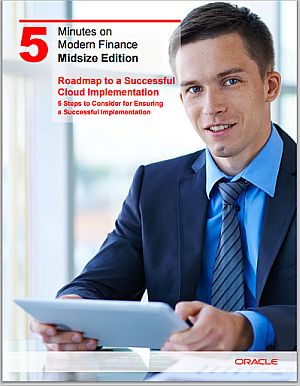Published on the 25/06/2015 | Written by Oracle

Essential steps to consider for ensuring a successful cloud ERP system…
If you are a growing midsize organisation, chances are you have outgrown your entry-level accounting system. More and more companies are turning to cloud ERP systems to modernise and lay the foundation for future growth. The advantages of an ERP solution delivered ‘as a service’ include an intuitive user experience, modern functionality and the ability to conduct business anywhere via mobile devices. Cloud ERP also offers more favourable economics with subscription-based licensing and minimal need for IT support. And, reduced implementation times offer you faster time-to-value. However, careful management of the implementation project is necessary to ensure current and ongoing success. Essential criteria to consider include data migration from existing systems, taking advantage of best practices, and using the modern capabilities built into the new cloud applications. There are five major steps involved in a cloud ERP implementation which will ensure success in the short and longer terms. They are: To find out more download our free whitepaper – Five minutes on modern finance midsize edition. Why, when, and how to invest wisely… The benefits of incorporating a data warehouse when upgrading your ERP… What to expect for the future of payables… Manual processes can lead to error-prone data analysis… What is a Finance Department and Manager Level KPI?…
…
FURTHER READING

Financial reporting and analytics solutions

Whitepaper: Data warehouse automation and ERP

eBook: The new AP department

Whitepaper: Streamline your financial year-end close

KPIs and Metrics for Finance Departments in 2020




























